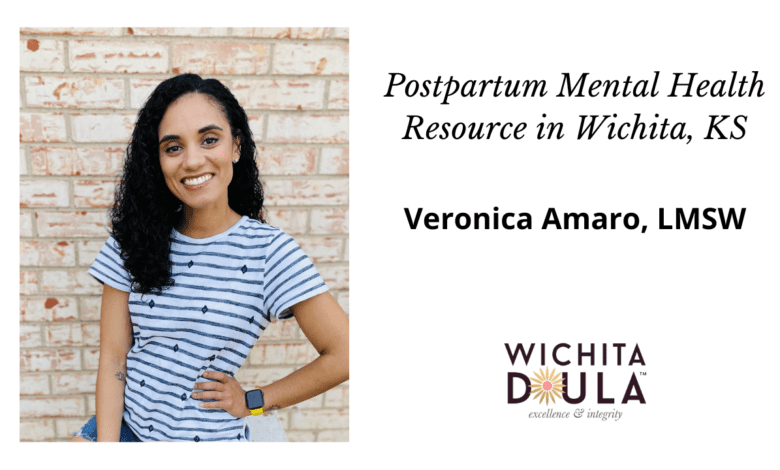Wichita Perinatal Mental Health Resource — Wichita Doula

1. How did you become interested in serving the perinatal population?
VA: I’m always amazed at what the human body is capable of, particularly in terms of carrying and giving birth to other people. After having a wonderful experience with my first pregnancy and becoming a mother, I realized that I wanted to do something with babies. However, I knew that being a nanny or caregiver was unrealistic for me. I began researching and discovered a great need for education and support for individuals and families in the stages of family planning.
2. What is your favorite thing about working with pregnant and postpartum parents?
VA: There are so many things about working with this population! Of course, it was great to see all those precious little ones. But I think for me it comes down to three things: the honor of being able to trust people during some of their most difficult states, seeing my clients grow as they navigate life changes and breaking down social barriers to help people discover who they are. as a parent.
3. What are your thoughts on the prevalence of perinatal mood disorder and the stigma new parents feel about seeking help?
VA: The topic of Perinatal Mood and Anxiety Disorders (including grieving the loss of a baby) is one of those things that happens too often to be considered “unusual,” but is too personal to be considered “normal.” Approximately 1 in 4 individuals experience Perinatal Mood and Anxiety Disorders during the prenatal and postpartum period. As awareness increases in our society, stigma decreases. However, new parents still struggle with things like not wanting to be a burden and not knowing what’s normal versus normal. Another struggle is finding a balance between reaching out for help while maintaining healthy boundaries for unsolicited help/advice. Finally, experiencing insecurity is a major obstacle for new parents. Asking for help does not mean you are a bad person/parent. To me, it just means you know your growth areas and are willing to learn and grow.
4. You and I both believe that parents should seek help for perinatal mood disorders before a breaking point is reached. What are some signs new parents should watch for?
VA: If readers learn nothing else, please try to understand that there are other mood and anxiety disorders besides depression. Some other common disorders are Postpartum Anxiety, OCD, Psychosis, and PTSD. Please don’t ignore the signs just because they don’t fit the description of depression.
I would say look for places where there is no balance that causes distraction. For example, there is no desire to care for yourself or the baby to the point where basic needs are not being met. Alternatively, having the desire to care too much interferes with daily life (too much laundry, cleaning, eating, sleeping, worrying, etc.). Other symptoms to watch for are significant changes in sleep, eating, and social interaction patterns. Additionally, reluctance to interact with the baby, signs of irritability, intrusive thoughts, thoughts of harming oneself or harming others are things to watch for. *Please note that some things are normal when adjusting to having a new baby in the house. If you feel strange, don’t hesitate to reach out to someone you trust such as a doctor, midwife, doula, close friend or family member.
5. Tell us a few things about yourself and your family. What do you like to do in your free time?
VA: If families were a trade, I would consider myself a “Jack of All Trades,” well almost…. I have biological children, experienced pregnancy loss, am part of a blended family , and there are fur babies. Together, my husband and I have three sons and a daughter ranging in age from 13 to 2. We also have two dogs and a pet cat in our home. As a family, we enjoy being outdoors, traveling and playing board games. When I’m not with my family or working, you can find me reading, drinking something hot (coffee, tea or room temperature water), or dancing.





